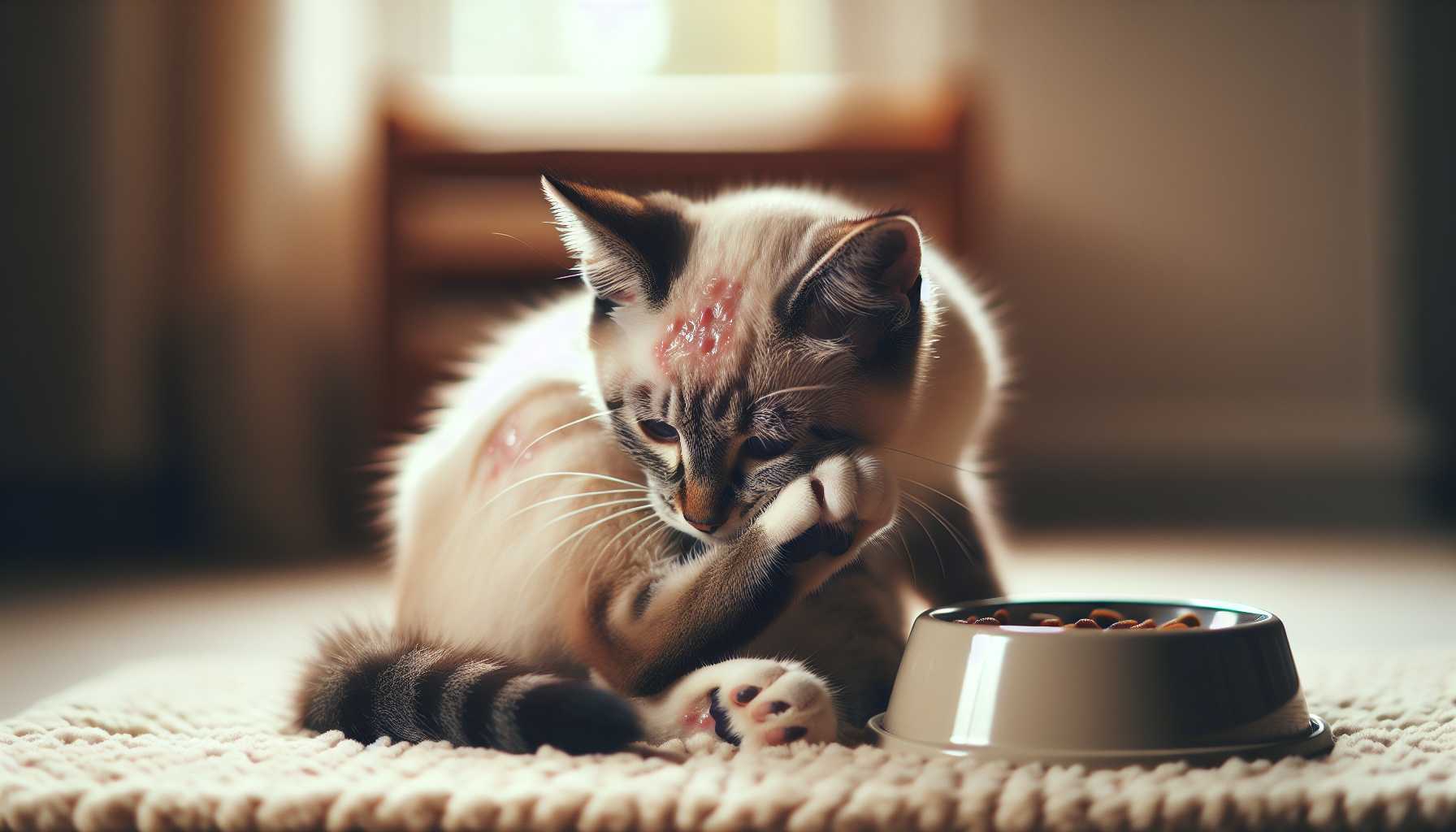Cat Food Allergy Symptoms: Early Warning Signs Guide

Recognizing the Early Signs of Food Allergies in Cats: A Comprehensive Guide
Noticed a change in your fuzzy companion's health or demeanor? Much like people, our feline friends can develop food allergies. If you're a cat owner, it’s essential to be familiar with the initial warning indicators of food allergies in your cherished pet.
Physical Signs Involving the Skin
Your cat's skin condition can provide important clues about their overall wellbeing. Be vigilant for: - Overly persistent scratching and grooming - Inflamed, irritable skin - Tiny lumps or skin rashes - Hair shedding in certain areas - Swollen or inflamed paws
If your feline companion is scratching endlessly, as though engaged in an intense competition, this might be a sign to delve deeper into what might be causing their discomfort.
Gastrointestinal Problems
Digestive disturbances are no fun for anyone. Typical indicators could include: - Unusual bouts of vomiting (more than just the occasional hairball) - Diarrhea - Excessive gas - Distension or bloating - Fluctuations in appetite
Facial Symptoms
Allergic reactions can sometimes manifest physically on your feline's adorable face: - Ear infections - Swollen lips - Watery eyes - Acne on the chin - Frequent sneezing
Changes in Behavior
Your feline could be trying to communicate that something is off through shifts in their behavior: - Heightened irritability - Lethargy - Alterations in sleep patterns - Lack of interest in their food bowl - Excessive grooming
Steps to Take
Should you notice these symptoms, relax! Here are the recommended steps: 1. Make a note of the symptoms 2. Take photographs if feasible 3. Reach out to your vet 4. Refrain from altering your cat's diet without professional consultation
Frequent Food Allergens
Common culprits of food allergies in cats can include: - Chicken - Fish - Beef - Dairy - Eggs - Wheat or other grains
Advice for Prevention
Ensure the health and happiness of your lovable feline with these suggestions: - Thoroughly read food product labels - Maintain a food diary - Choose high-quality cat food - Contemplate diets with a limited number of ingredients - Regular vet consults
Bear in mind, every cat is different, and an approach that works for one cat might not necessarily suit another. If you suspect that your feline friend is dealing with food allergies, don't hesitate to seek professional advice.